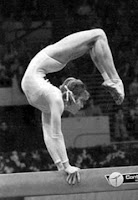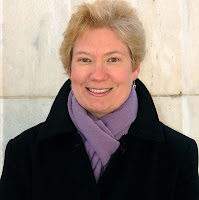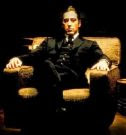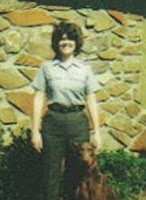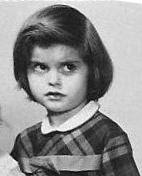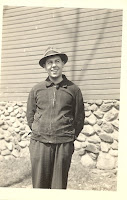The Week in Review
I’m leaving for San Francisco on Saturday and for all of you West-Coasters/Bay Area denizens, please stop by M Is for Mystery in San Mateo, on Sunday, June 29th, at 2:00. I’ll be signing, reading, chatting, and having a great time talking about my second Alison Bergeron mystery, “Extracurricular Activities.” I hope to see you!I’ve been in that frantic pre-trip frenzy, getting ready to leave for a week. I’m leaving the computer at home and am wondering just exactly how I’ll stay in touch with the world. But whatever—I’ll be in San Francisco, the city that ranks right behind my hometown, New York City, as the best in the world. (And, oh yeah, Paris. And of course, Miami…I’m fickle.)
But in the midst of all this preparation, I’ve been thinking about the past week and had a few thoughts on a couple of topics/people. Ready? I thought so.
1. The death of George Carlin: OK, God, you took Russert, and now Carlin. I can’t even imagine who’s next and am not going to name names in case it gives you any ideas. You’ve got the smart guy, and now the funny/smart guy. No more. And by the way, I’m sure you have access to YouTube up in heaven; couldn’t you have contented yourself with watching old bits from Carlin and left him with us for another twenty years? Favorite bits: STUFF (your house is just a big receptacle for all of your STUFF); driving (why is the guy going slower than you a moron and the guy going faster than you a maniac?); intelligence (think about the average American and then remember that half of the population is dumber than that). That’s all I can think of for now and of course, I’ve taken literary license. We’ll miss you, George. Hope you got to meet Joe.
2. And speaking of Russert: Tom Brokaw subbed on “Meet the Press” this week and it sounds like he will be the guy until the election (and hopefully after). We needed Brokaw back. I’m just sorry it came about the way it did but his presence on television can only be considered a positive.
3. Michelle Obama: I never watch “The View” (I’m working, people!). But I took time out last week to watch her just to get a sense if all of those maniacal talking heads who have branded her a militant (the way that word is used…in the words of the Northern half of Evelyn David: Oy!), caustic, rigid, fist-bumping terrorist were right. Not only were they wrong, they now look like fools. She was warm, gracious, real, and unpracticed (or maybe that’s just my gullibility showing). She’s got a husband who she’s crazy about, despite the fact that she initially did not want him to run for president. She’s got two adorable daughters. And that dress she had on? Perfection. If I had a muscle in my upper arms, I would go out and buy it. Never did a $119 dress look so perfect. Go, Michelle.
4. Cindy McCain: Beer heiress Cindy showed her humanitarian side last week. And I liked it. Who’s with me that the women are going to outshine the men in this election? One can only hope…
5. Following your dream versus getting a job: A friend read my post called “Perception versus Reality” a few weeks back and then attended her son’s college graduation. The speaker was a young broadcast journalist who we all know who implored students to “follow their dreams.” My friend, who’s had enough of dream following to last a lifetime, reflected on my post and wrote me to chat about it. Very gratifying. But it got me thinking: what happened to that idealistic college grad that I was back in 1800? I’ve come to the conclusion that I’m not a dream killer, I just think you should have a job while pursuing your dream. Spoken like a mother, right? I’ve sold out. I’m THE MAN. I’m BIG TOBACCO. I’m THE ESTABLISHMENT. When did that happen?
And on a strictly personal note, thank you to all of you who read and comment on these blogs. I was talking to a fourth-grader the other night who told me that her dream is to be a writer and she asked me what it takes. While I said,“write every day,” her mother chimed in with “read everything you can get your hands on.” Those are the two main keys, certainly. And by allowing me to blog every week about any variety of topics, my writing has become clearer, sharper, and more focused. I’m writing more than I’m reading, admittedly, and that’s fine. I’m building up those Stephen King “writing muscles.”
I’ll catch you up on my trip when I return. Now I’m going to try to tackle packing a week’s worth of clothing into a carry-on bag. Wish me luck!
Maggie

